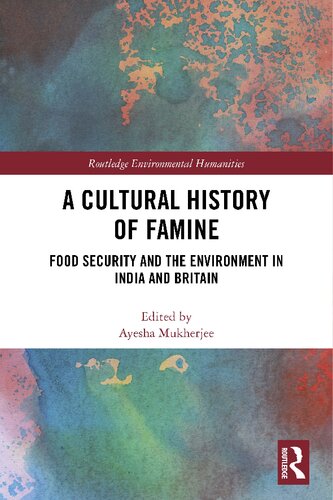

Most ebook files are in PDF format, so you can easily read them using various software such as Foxit Reader or directly on the Google Chrome browser.
Some ebook files are released by publishers in other formats such as .awz, .mobi, .epub, .fb2, etc. You may need to install specific software to read these formats on mobile/PC, such as Calibre.
Please read the tutorial at this link: https://ebookbell.com/faq
We offer FREE conversion to the popular formats you request; however, this may take some time. Therefore, right after payment, please email us, and we will try to provide the service as quickly as possible.
For some exceptional file formats or broken links (if any), please refrain from opening any disputes. Instead, email us first, and we will try to assist within a maximum of 6 hours.
EbookBell Team

4.3
88 reviewsThe term "food security" does not immediately signal research done in humanities disciplines. It refers to a complex, contested issue, whose currency and significance are hardly debatable given present concerns about environmental change, resource management, and sustainability.
The subject is thus largely studied within science and social science disciplines in current or very recent historical contexts. This book brings together perspectives on food security and related environmental concerns from experts in the disciplines of literary studies, history, science, and social sciences. It allows readers to compare past and contemporary attitudes towards the issues in India and Britain – the economic, social, and environmental histories of these two nations have been closely connected ever since British travellers began to visit India in the latter half of the sixteenth century. The chapters in this book discuss themes such as climate, harvest failure, trade, technological improvements, transport networks, charity measures, and popular protest, which affected food security in both countries from the seventeenth century onwards. The authors cover a range of disciplinary and interdisciplinary approaches, and their chapters allow readers to understand and compare different methodologies as well as different contexts of time and place relevant to the topic.
This book will be of great interest to students and researchers of economic and social history, environmental history, literary studies, and South Asian studies.